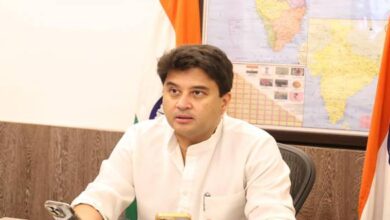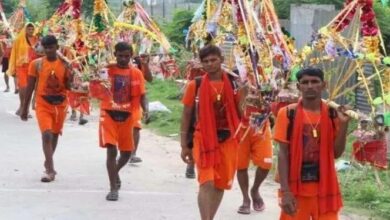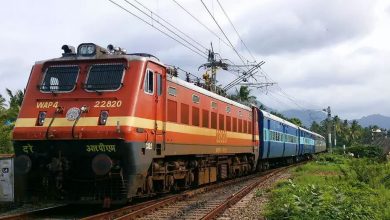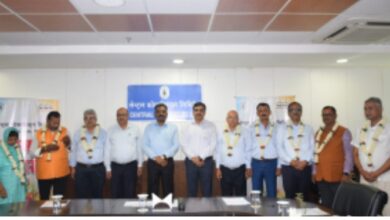Democracy, Judiciary And Executive In Today’s India

Democracy means there should be a space for all opinion, views and dissents. Unfortunately now a days it has become a trend and fashion to brand critics of the Government as “ Anti National”. Anybody who disagree with the decision of the ruling party is mercilessly attacked and branded as Anti National and condemned. Recently it came in the media that a Group of retired IAS Officers have formed a group and have started reacting on certain controversial decisions taken by the Government like CAA / NRC, Farm Bills, Love Jihad Laws etc., One farmer IOFS Officer who retired as DGOF / Chairman OFB has written to the Government to not corporatize the Ordnance Factories and to reverse its decision. It is unfortunate that those who are into power don’t bother about the expert opinions especially those of the veterans in the field. Government may claim that it is not duty bound to listen to those dissenting views . But what is wrong if those dissenting views and opinions are subjected to consideration and discussion within the Government.
What is happening in our country? If anybody criticises a Government’s decision immediately the supporters of the Government starts labelling them with a tag as “Anti National” “Ultra Leftists” “Maoist” “Urban Naxals” and so on. Is this going to help the Government in anyway. Ignoring the views, comments, opinion, dissents etc., is resulting only in more and more revolt resulting in agitations. This is what we are seeing in the country. Farmers struggle against Farm Laws, Workers struggle against New Labour Codes, Defence Employees struggle against Corporatisation, GOCO Model and privatisation, Public sector employees struggle against privatisation, Government employees struggle against New Pension Scheme, DA Freeze, injustice done to them by 7th CPC and Government, struggle of insurance, LIC and bank employees against privatisation etc., are certain examples.
Government is not coming forward to listen to the views of the affected stake holders and accommodate their views on the policy decisions taken by the Government. Ultimately Courts interfere and judgements are given which further aggravate the problems instead of solving them. The latest example is the judgement of the Supreme Court which stayed the implementation of the 3 Farm Laws passed by the Parliament by ignoring the dissents. Constitutional experts and senior lawyers are now discussing about the “validity” “merit” and “demerit” of the judgements. I am not a lawyer to enter that area and comment upon. As a common man and as a Trade Union worker I am only concerned about the spirit of this Supreme Court Order. The Supreme Court has viewed the case as an agitation and how to diffuse the situation. The court has not gone into the constitutionality of the laws or the genuine concerns of the farmers. Supreme court has ordered the constitution of a four member committee and a farmer unions have rejected this special committee.
The Government opposed the stay and the farmers opposed the special committee. Supreme court ordered the stay of the operation of the laws and constituted the committee. Who has got relief from this judgement. The farmers are demanding for withdrawal of the Farm Laws. The farmers are already told that all the four members of the committee are supporters of the farm laws and that no useful purpose is going to be served. BKU National President Bhupinder Singh Mann, has announced that he do not want to be a part of the committee. In his letter to the Supreme Court he wrote “because of the apprehensions of the farmer unions and the public in general I am ready to sacrifice any position given to me. I am recusing myself from the committee and will always stand with the Farmers”.
Now what is going to happen? Whether somebody else will be nominated? Whether the committee will be a starter or a non starter? Since the farmers have rejected the committee what the Government is going to do? In such type of matters which affect a large section of the people and if they agitates and the courts will stay the implementation of the Government decision and to form committees then what is the role of the Executives in a democracy? Yesterday also the ninth round of talks between farmers unions and the Centre on Friday remained inconclusive and decided again to meet on 19th. The farmers however reiterated that they won’t end their protest until the 3 laws are withdrawn fully.
Farmers issues are not the only issue which the people of the country are confronting with the Government. As already mentioned workers and Trade Unions are against the Anti Labour Labour Codes. The Defence employees are fighting against Corporatisation of Ordnance Factories, GOCO Model and privatisation. Government employees, Public Sector Employees and unemployed youths are already in the struggle field.
In a democracy in which the Executive are vested with the power to take policy decisions, pass laws in the legislature etc., the Government should not be adamant, should not act by only listening to the Corporate houses and its blind supporters and take decisions. Democratic values and ethics demands wide range of consultations, discussions in a cordial atmosphere and give importance to the views and concerns of the people and the organisations which oppose the decisions of the Government. There is nothing wrong in repealing the farm laws, the labour codes, Corporatisation of Ordnance Factories, GOCO model and privatisation in defence, privatisation of public sector, withdrawal of NPS and DA freeze etc., Repeal the unacceptable decisions taken by the Government and start negotiations / discussions with all the affected parties on the issues mentioned above, develop consensus and goodwill amongst the people. This is what is expected from democratically elected sensible Government. Executives cannot escape by leaving everything to Court and streets.
Views expressed here are those of C. Srikumar, General Secretary of All India Defence Employees Federation (AIDEF)




